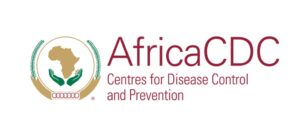

EOI to be a Level 1 or Level 2 Biosafety and Biosecurity Expert Through the Alternative Pathway Under the
Africa CDC Regional Training and Certification Program for Biosafety and Biosecurity Professionals in the Africa Region
EOI No. ASLM/ACDC/EOI/Af-RSME/12/015/24
Expression of Interest - English
The Africa Centres for Disease Control and Prevention (Africa CDC) Biosafety and Biosecurity Initiative (BBI) was launched by the Africa CDC in April 2019 with the aim of strengthening the African Union (AU) Member States’ biosafety and biosecurity systems and enabling them to comply with national and international requirements for biosafety and biosecurity including the International Health Regulations (IHR) (2005), the Biological Weapons Convention (BWC), and United Nations Security Council Resolution (UNSCR) 1540 and the multi-country Global Health Security Agenda (GHSA). The World Health Organization (WHO) Joint External Evaluation (JEE) and the Global Health Security Index report confirmed the known capacity gaps in biosafety and biosecurity among Africa Union Member (AU).
The regional consultations by Africa CDC conducted between 2019-2021 highlighted the deficiency or limited availability of standardized and regionally recognized training programs in the continent, limiting biosafety and biosecurity capacity building efforts in the region. In response, Africa CDC working with AU Member States developed a home grown, implementable and accessible professional training and certification program that is both recognized and endorsed by AU Member States. The Regional Training and Certification Program for Biosafety and Biosecurity Professionals, for African Biosafety and Biosecurity Professionals (RTCP-BBP) has four (4) areas of specialization, namely
- Selection, Installation, Maintenance and Certification of Biological Safety Cabinets
- Biorisk Management
- Design and Maintenance of Facilities Handling High Risk Pathogens (Biocontainment Engineering)
- Biological Waste management
Certification Levels
The RTCP–BBP is based on a proficiency matrix intended for use as a guide in assessing individuals’ competencies relative to the programs’
four (4) areas of specialization above. There are three levels of
certification, Level 1,2 and 3 as described in the Regional Training and Certification Program for Biosafety and Biosecurity Program. Please refer to the link to review the three Certification Levels: https://africacdc.org/download/the–regional-training–and-certification-program–for-biosafety–and-biosecurity-professionals/
TheRTCP-BBP isintended to complement existing andfuturetraining and certification programs rather than replace them. It seeks to bring together training and professional development programs into a
singular, regionally acceptable certification framework. As such, the framework provides for
recognition of other training programs that meet the agreed competencies without having to undergo
the formal training and certification steps outlined in the RTCP-BBP. Upon review of one’s prior training and experience by the Examination and Certification Committee, the candidate
is placed at a level that matches the competencies agreed in the RTCP–BBP (levels
1 and 2).
Recognition under the Alternative Pathway follows the following steps
· Potential candidates compile aportfolio ofevidence oftheir training and experience in response
to a call for application by Africa CDC
· The ECC at their scheduled sittings, reviews the portfolio of evidence and where the candidates
qualify, is certified at the level
that matches their training and experience
· The candidate is informed and issued with a formal certificate and listed under the respective
African Union Register
of Biosafety and Biosecurity Professionals
Table below summarizes the competencies covered for Level 1 and 2 under the RTCP–BBP
Interested candidates whose training and experience matches Levels 1 or 2 above should submit a Portfolio of Evidence that include the following
· A 1 paged application letter indicating the areas of specialization among the 4 and level to be considered (Level 1 or Level 2)
· A Capability Statement. The Capability Statement is a description of the Applicant’s work history and/or experience in any of the 4 areas of specialization. This should include but not limited to, a narrative description of the work done, how it was done and the results. There should be a clear connection on how this is related competencies in the RTCP–BBP
· An updated Curriculum Vitae
· Letters from at least three (3) current and contactable references with their contact information (email and mobile number)
· Certified copies of all the original relevant degrees, diploma and in-service training certificates · Certified copies of any professional registration certifications/confirmations
· To proceed with your application, please complete the form below. Ensure all fields are properly filled and all required documents are attached. Once you have verified the information and attachments, click the “SUBMIT” button to finalize your submission.
The ECC will evaluate the applications based on preset standards relevant to the specific areas of specialization and level applied for. An evaluation matrix with assigned weighted numerical scoring values will be used to rate each applicant.
The ECC reserves the right, but is under no obligation, to enter into discussions with one or more respondents in order to obtain clarifications or additional details.
Call for Applications for the Africa Region Subject Matter Experts (Af-RSME) EOI No. ASLM/ACDC/EOI/Af-RSME/12/015/24 is Over